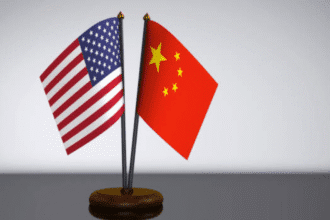The social media giant scored a major legal victory in its high-profile meta antitrust trial, ending a years-long legal battle over its acquisitions of Instagram and WhatsApp. A U.S. district judge ruled that the company does not hold monopoly power in the social networking market, directly addressing questions like why Meta is a monopoly and concerns about Meta will have to sell Instagram.
- Implications for the FTC
- Market Dynamics and the Collapse of Monopoly Arguments
- Behavioral Study and Its Courtroom Impact
- Evolving Competition and Consumer Behavior
- Acquisitions and Zuckerberg’s Defense
- Regulatory Climate and Big Tech Oversight
- Continuing Legal Challenges for the Social Media Giant
- Post-Trial Roadmap and Strategic Innovation
- Antitrust Ruling and the Future of Digital Oversight
- Conclusion: Place in a Competitive Tech Ecosystem
- FAQs
The ruling confirmed that the Facebook parent company operates in a highly competitive market and is not a monopoly despite earlier acquisitions of rival platforms. Judge James Boasberg emphasized that historical control does not automatically translate to present-day dominance.
Implications for the FTC
The Federal Trade Commission had argued that the social networking platform’s acquisitions eliminated competition, but the court rejected these claims. This decision reduces the likelihood of forced divestiture of Instagram or WhatsApp and clarifies that regulatory efforts must reflect current market dynamics rather than past events. Questions about will Facebook would sell Instagram were effectively rendered moot.
Market Dynamics and the Collapse of Monopoly Arguments
FTC’s Limited Market Definition
The FTC attempted to define a narrow market called “personal social networking,” including only Facebook, Instagram, Snapchat, and MeWe. Platforms like TikTok, YouTube, and Reddit were excluded, despite their massive audiences and overlapping functions. The court found that this approach failed to reflect modern consumer behavior, undermining the agency’s case.
Dynamic Competition in Social Media
Judge Boasberg highlighted that the social networking platform operates in a fluid environment. Younger users often migrate between apps, and newer platforms have redefined content consumption. The court noted that market share alone is insufficient to prove monopoly power, confirming that the company faces robust competition. Evidence from the meta-hearing and meta-trial reinforced the idea that user attention is widely dispersed.
UnitedHealthcare CEO Murder Suspect Arrested in Pennsylvania
Behavioral Study and Its Courtroom Impact
The Substitution Experiment
The tech firm commissioned a groundbreaking study conducted by economist John List. Participants were financially incentivized to avoid Facebook or Instagram for a period of time. Tracking software monitored their activity, providing insight into how users redistributed their time across other platforms.
Key Findings
The experiment revealed that users largely migrated to TikTok, YouTube, or the other in-house platform, while WhatsApp and MeWe played minimal roles. Judge Boasberg cited this as “the best evidence” of consumer alternatives, showing that the company does not dominate the market. This study addressed questions raised during the meta hearing, particularly regarding Meta will have to sell Instagram.
Supporting Evidence from Real-World Events
Additional proof came from platform outages and international events. For instance, when TikTok was banned in India, Instagram and Facebook usage surged, demonstrating that users have multiple viable alternatives. This reinforced the court’s conclusion that the social networking platform operates in a competitive landscape.
Evolving Competition and Consumer Behavior
Shift from Friends-and-Family Networks
The court observed that social media has moved beyond personal networks. Algorithm-driven content on TikTok and YouTube dominates the digital landscape, making the role of Facebook and Instagram less central in everyday social interaction.
Real-World Evidence of Market Dynamics
User migration patterns indicate that new entrants are strong competitors. TikTok’s rapid growth and YouTube’s enduring dominance show that the tech firm does not control the social networking space. This real-world evidence was pivotal in refuting monopoly claims. Visit our homepage for more information.
Acquisitions and Zuckerberg’s Defense
Strategic Reasons Behind Purchases
During the meta trial, Mark Zuckerberg defended Instagram and WhatsApp acquisitions as strategic moves to enhance innovation rather than eliminate competition. Instagram’s photo-sharing capabilities and WhatsApp’s secure messaging were complementary to Facebook’s platform.
Regulatory Approval and Historical Context
Zuckerberg also emphasized that both acquisitions had received prior regulatory approval. Judge Boasberg considered this, noting that retroactive punishment would be inconsistent with existing law. This addressed concerns about will Facebook sell Instagram and reinforced the legitimacy of past business decisions.
Clarifying Historical Statements
The FTC referenced a 2008 email in which Zuckerberg stated, “it is better to buy than compete.” The judge concluded this reflected standard business strategy rather than an attempt to monopolize, weakening the FTC’s claims and reinforcing the company’s legal defense.
Regulatory Climate and Big Tech Oversight
Comparison with Other Tech Giants
The decision comes amid growing scrutiny of other major tech firms. Google has faced antitrust challenges over search and advertising, while Apple and Amazon confront similar oversight issues. Courts now demand precise, evidence-based arguments demonstrating actual harm to competition.
Implications for Future Cases
Legal experts, including Rebecca Haw Allensworth, suggest the ruling sets a precedent: regulators must provide concrete evidence of market harm. Static claims of dominance are insufficient; dynamic analyses of user behavior and competition are required.
Continuing Legal Challenges for the Social Media Giant
Youth Safety and Mental Health
Despite avoiding antitrust penalties, the Facebook parent company still faces legal battles regarding social media’s impact on young users. Both Zuckerberg and Instagram head Adam Mosseri are required to testify in cases focusing on addictive features and mental health risks.
Product Responsibility and Oversight
Beyond monopoly concerns, the company is scrutinized for privacy practices, algorithmic transparency, and content moderation. While it avoided divestiture, ongoing public and regulatory attention highlights the responsibility that comes with scale.
Post-Trial Roadmap and Strategic Innovation
Competition and Innovation
With structural changes off the table, the social networking platform can focus on product innovation. Investments in AI, virtual reality, and personalized recommendation systems aim to retain user engagement and compete with emerging rivals.
Adapting to Changing User Behavior
Consumer habits continue to evolve. Younger audiences gravitate toward short-form video platforms, requiring the company to adapt through new features, content formats, and cross-platform integration. This agility is key to sustaining market relevance.
Antitrust Ruling and the Future of Digital Oversight
Lessons for Regulators
The ruling demonstrates that evaluating why is Meta a monopoly requires dynamic analyses of real-world competition. Static market definitions fail to capture modern social networking, which is influenced by algorithmic feeds and content discovery.
Shaping the Regulatory Landscape
Future antitrust enforcement may focus more on algorithmic control, data usage, and consumer harm rather than historical acquisitions. This precedent protects the company today while emphasizing evidence-based regulation in rapidly changing digital markets.
Conclusion: Place in a Competitive Tech Ecosystem
The social media giant’s victory confirms that it does not have a monopoly despite FTC scrutiny. TikTok, YouTube, Snapchat, and emerging platforms provide substantial competition. While divestiture is off the table, the company must innovate and adapt continuously. Regulatory attention may shift toward AI, privacy, and youth safety, signaling that future oversight will emphasize responsibility alongside market influence.
This case demonstrates that the tech firm operates in a vibrant, competitive ecosystem where evidence-based analysis of consumer behavior is key to evaluating market power. The company’s future success depends on continued innovation and careful attention to evolving trends in digital engagement. Mark Zuckerberg to Testify in Major Social Media Lawsuit
FAQs
- Why did the FTC sue Meta?
The FTC filed an antitrust case claiming that Meta acquired Instagram and WhatsApp to reduce competition in social networking. - Is Meta considered a monopoly now?
No, the court ruled that Meta does not hold monopoly power due to strong competition from TikTok, YouTube, and other platforms. - Will Meta have to sell Instagram or WhatsApp?
No divestiture is required; the court rejected the FTC’s request to force Meta to sell its acquisitions. - What role did Mark Zuckerberg play in the trial?
Mark Zuckerberg testified, defending the Instagram and WhatsApp acquisitions as strategic moves to enhance innovation. - How did the court determine competition in social media?
The court cited studies and real-world user behavior showing that consumers freely switch between Meta apps, TikTok, YouTube, and other platforms.








